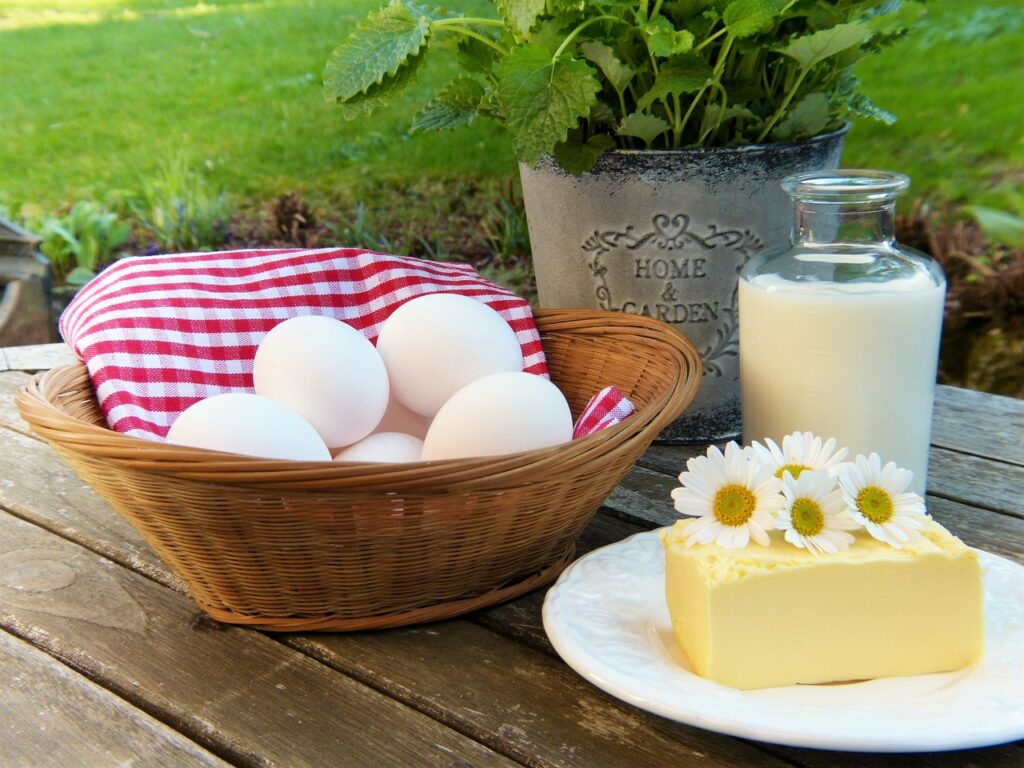<p style="text-align: justify;">It is very important that one keeps note of the nutrients that they consume in a day. We assume that by not skipping meals we get our fill of the healthy nutrients that our body needs, but this isn&#8217;t all. We should keep track of what we eat.</p>
<p style="text-align: justify;">By knowing how much our intake is and ideally how much it should be we are better able to manage our food choices. We already know the most talked about bone-building sources like milk and Vitamin D. Here are the five most important foods to boost bone health you must add to your diet today.</p>
<h3 style="text-align: justify;"><strong>1. Milk</strong></h3>
<p style="text-align: justify;">What we need from milk is calcium. 8 ounces of fat-free milk has 300 mg of calcium. The quantity also possesses 30% of the intake recommended for a 50-year-old. Many people dislike milk, however, the good news is that there is a way around that. You can always drink milk by blending it with your favorite fruit and having a smoothie. Make sure that when grocery shopping you choose the milk brand that is fortified and contains Vitamin D so that you do not miss out on those extra benefits for bone health.</p>
<h3 style="text-align: justify;"><strong>2. Yogurt</strong></h3>
<p style="text-align: justify;">Yogurt is another great way of getting the recommended dosage of calcium that your body needs. The good thing about yogurt is that it is portable, easy, tasty, and full of nutrition. Apart from strengthening your bones, it harbors probiotics which boost a healthy gut. Yogurt works as a good breakfast option and an easy snack. Greek yogurt comes with comparatively less calcium but it has a higher protein content which makes you feel full. Most people who are lactose intolerant can eat yogurt without a problem.</p>
<h3 style="text-align: justify;"><strong>3. Prunes</strong></h3>
<p style="text-align: justify;">Dried plums or prunes help in the strengthening of the bones. They can also reverse bone loss caused by Osteoporosis. The condition is caused by low bone density which leads to fractures and other injuries. If you are struggling with shoulder or joint injuries, consult your physician today.</p>
<p style="text-align: justify;">Studies suggest that eating as much as 5 to 6 prunes in a day can get you the nutrients for the bone strength that you should have.</p>
<p style="text-align: justify;">Other than strengthening bones, prunes have other advantages too. They have lots of fiber which helps regulate the digestive system. They are also packed with Vitamin C and help alkalize the human body which helps protect the bones.</p>
<h3 style="text-align: justify;"><strong>4. Salmon</strong></h3>
<p style="text-align: justify;">Salmon is excellent for our heart, thanks to the omega- 3 fatty acids that it harbors. Fatty fish like salmon also benefit our skeletal health. Salmon is rich in Vitamin D which is great for calcium absorption and restoring bone health. A single serving with four ounces of cooked salmon comes with 600 IUs of Vitamin D. This is also the ideal intake for people under the age of 70. While we can get enough Vitamin D from sunlight, people do not realize how deficient they are in this vitamin and how only a few foods are a rich source, making them super essential as a nutrient.</p>
<h3 style="text-align: justify;"><strong>5. Greens</strong></h3>
<p style="text-align: justify;">Consuming a diet that has a lot of fruits and vegetables is great for a lot of reasons. They contribute to stronger bones &#8211; they have polyphenols and antioxidants that are excellent for us. Most fresh fruits and veggies packed with Vitamin K, potassium, and magnesium all of which have been proven to boost the body’s skeletal health.</p>
<p style="text-align: justify;">Greens like Bok choy, kale, and turnip greens are excellent sources of calcium. A cup of cooked greens come with 200 mg calcium which is 20% of the daily calcium recommendation for someone who is 50 years old. These greens are also filled with nutrients like fiber, iron, potassium, folate, Vitamin C, beta-carotene, and Vitamin K. You can have them as you like. Sauté these ingredients with olive oil, have them in a salad or a smoothie, or add them to a casserole.</p>
<p style="text-align: justify;">If you still believe that your diet lacks both vitamin D and calcium, you can always switch to taking supplements. However, this should not be your first option. It is ideal that you get these nutrients from foods, and if you can’t, then only should you look towards a supplement. If you think you are the sort who will probably forget to take calcium every day, try to make a habit of having them after lunch or dinner. It is recommended that you take 500 mg of calcium and 500 International Units of Vitamin D. You should not take too much as more calcium is not beneficial to the body and may instead create kidney stones.</p>

5 Foods To Boost Bone Health
